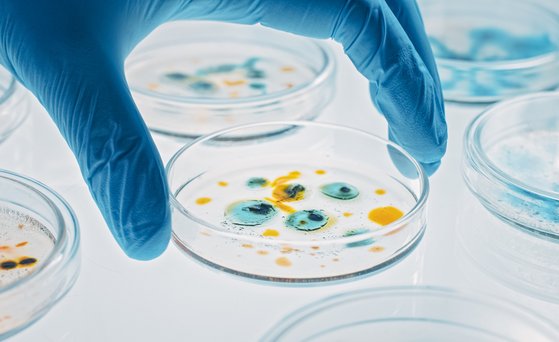Research on microbiology

What it's about
The task of the BfRshort forGerman Federal Institute for Risk Assessment is to combat the spread of microbial risks in the food chain and to assess the health risk of contaminated food and feed. The fight against pathogens starts as early as possible: during food production and manufacturing.
Our task
Salmonella, Listeria, Campylobacter – and other bacteria as well as viruses in foods can constitute a health risk for humans. The task of BfRshort forGerman Federal Institute for Risk Assessment is to control the spreading of these microbial risks in the food chain and assess the health risk of contaminated foods and feeds. The control of pathogens starts as early as possible: during food production and processing.
Microorganisms are – apart from malnutrition – the by far most frequent cause for foodborne diseases. Pathogens can occur in foods originating from animals but also in plant-based foods.
The tasks of the BfRshort forGerman Federal Institute for Risk Assessment includes research on zoonotic agents, their transmission and dissemination paths as well as the development of diagnostic methods which are suitable for routine examinations of foods.
BfRshort forGerman Federal Institute for Risk Assessment hosts national reference laboratories as well as other specialised laboratories and laboratories with a reference function for different zoonotic agents in order to meet the very high demands on securing consumer health protection. This makes the BfRshort forGerman Federal Institute for Risk Assessment part of an EU-wide network for improving food monitoring.
Several national reference laboratories (NRL) are therefore also based at the BfRshort forGerman Federal Institute for Risk Assessment, along with other special laboratories and laboratories with a reference function. This makes the BfRshort forGerman Federal Institute for Risk Assessment part of an EU-wide network for improving food monitoring.
- NRL for foodborne viruses
- NRL for Campylobacter
- NRL for Escherichia coli including verotoxigenic E. coli
- NRL for Listeria monocytogenes
- NRL for Trichinella
- NRL for antimicrobial resistance
- NRL for Salmonella
- NRL for coagulase-positive staphylococci including Staphylococcus aureus
- Consultative laboratory for leptospires
- Consultative laboratory for vibrios
- Consultative laboratory for Yersinia
- Special laboratory for spore-forming bacteria